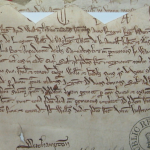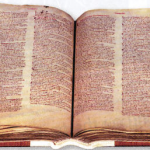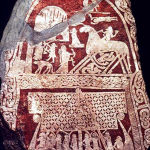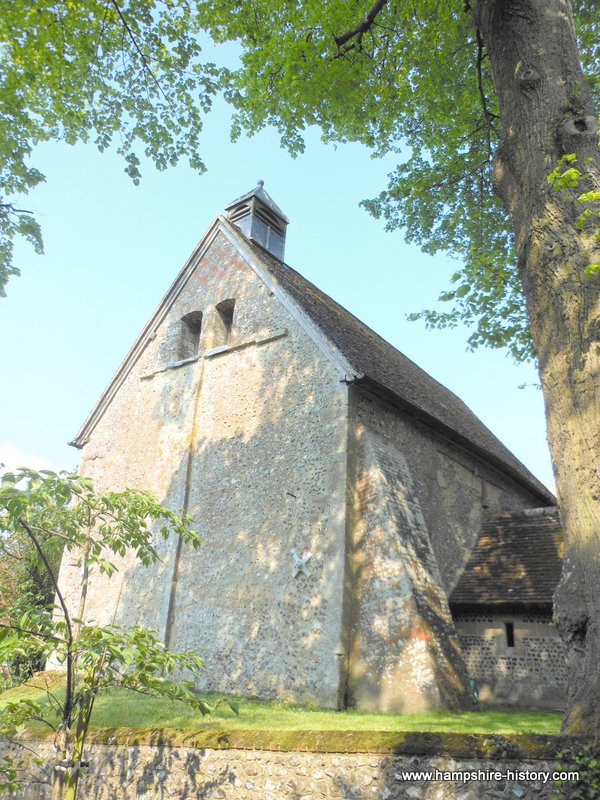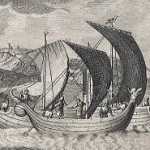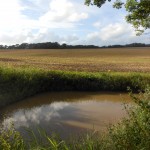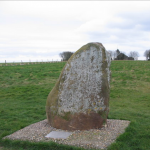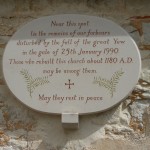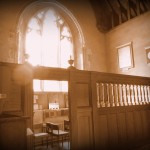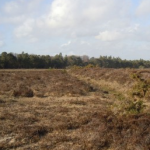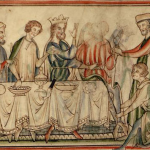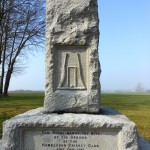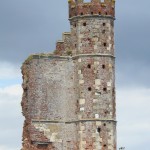Periods of British and Hampshire’s History
Old Minster Winchester
The Old Minster Winchester was one of the most important religious houses and places of pilgrimage in the late Anglo Saxon period. It was the initial resting place of King Alfred the Great and the place where King Canute and Edward the Confessor were crowned.
Read MoreKing Arthur, Gereint ab Erbin and Portsmouth
What is the possible link between Portsmouth and a character from Arthurian legends Gerren, leader of the Dumnonia?
Read MoreHampshire ‘Feet of Fines’
‘Feet of Fines’ documents for Hampshire date back to 1199 and give surnames and placenames of people living in Hampshire in the Medieval period. These are important resources for Hampshire History and help to build a picture of community and settlement in the county.
Read MoreHampshire Domesday
The history of C11th Hampshire is contained within Domesday, which gives a rich picture of life in the county nearly a thousand years ago
Read MoreDanes Attack Wessex Towns AD 1001
In AD 1001, the Danes attacked several Hampshire towns burning them to the ground.
Read MoreWhat is a Hampshire Hog?
People of Hampshire are colloquially referred to as ‘Hampshire Hogs’ a reference to the Hampshire Pig which was bred out of the wild boar that roamed the New Forest a thousand years ago
Read MoreThe Round Table Winchester
The Round Table hanging in the Great Hall at Winchester Castle still manages to inspire mystery, even after hanging on it’s walls for over five hundred years.
Read MoreSaxon Corhampton Church
When considering Anglo Saxon Hampshire, the little church at Corhampton has to be the jewel in the crown, with Saxon features springing from its feet upwards.
Read MoreHampshire’s Greatest Nobleman? Thomas Wriothesley
Sir Thomas Wriothesley, 1st Earl of Southampton (Hampshire) , was quite possibly one of Hampshire’s most noble and influential lords. He amassed a fortune in lands and property in the county. His family would thrive upon his fortunes. Whilst his name and title has disappeared how is is his life connected to the county of Hampshire.
Read MoreKing Alfred’s Navy
King Alfred left many enduring marks on the county of Hampshire and England. One of his legacies is that of a navy. He designed ships to out do the Danish ships that threatened the southern coast of England.
Read MoreKing Sigebert – The Usurper
Sigebert ruled for one year, as King of Wessex, before losing his position on account of ‘wrong doings’. The importance to Hampshire history of this event is that its record in the Anglo Saxon Chronicle is the first time Hampshire is recorded as a separate entity.
Read MoreVikings Move Against Wessex
Alfred held out against the Viking invasion and showed great skills in organizing his militia, so that when the opportunity to crush the Danish attack, he did so, decisively and coherently at the Battle of Edington
Read MoreKing Edward the Confessor grants Hides at Micheldever to New Minster 900
example of the King granting via Royal Charter land to the Church at Micheldever in the 10th Century with link to the original Old English
Read MoreThe Great Yew of Selborne
Great yews proliferate in the churchyards of Hampshire, one such example could be found at Selborne until it was brought crashing down in a storm in 1990
Read MoreSir Adam de Gurdon
Sir Adam de Gurdon, one time knight and land owner in Hampshire became a notorious highwayman after losing his estates because of his support for Simon de Montfort in the Second Barons War
Read MoreHyde Abbey
The final burial place of King Alfred the Great, Hyde Abbey in Winchester is as simple as Alfred’s life was great. Little is left of the once great Abbey and its buildings now quietly nestling in a residential area
Read MoreThe ‘Bloody Heath’ and Cerdic
Charford in Hampshire is thought to have been the scene of a bloody battle that resulted in Cerdic and his son Cynric becoming the first kings of the Kingdom of Wessex.
Read MoreEarl Godwin of Wessex
Earl Godwine of Wessex was one of the most powerful men in England before the Norman Conquest, the father of 5 Earls, father to the Queen of England and father-in-law to the King. Father to King Harold II. Quite an achievement for a man who died before he was sixty years old
Read MoreHambledon Cricket
The Hambledon Cricket Club, the inspiration for English cricket.
Read MoreWarblington Castle
Although little is left of Warblington Castle, on the southern coast of Hampshire, it was home to several notable families whose role in the history of England, was of extreme importance.
Read More


